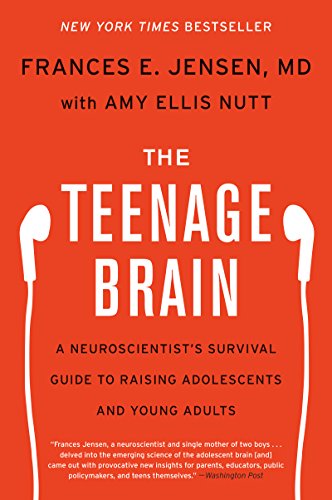The Teenage Brain: A Neuroscientist’s Survival Guide to Raising Adolescents and Young Adults Link to heading
Summary Link to heading
“The Teenage Brain,” authored by Frances E. Jensen and Amy Ellis Nutt, delves into the complexities of the adolescent brain from a neuroscientific perspective. The book explores how brain development impacts teenagers’ behavior, emotions, and decision-making processes. Jensen, a neuroscientist, offers insights gained from both personal experiences as a mother and her extensive research. The book covers various topics, including the influence of drugs, peer pressure, and technology on the adolescent brain. It also highlights the plasticity of the teenage brain, suggesting that this period is crucial for learning and growth.
Review Link to heading
“The Teenage Brain” has been well-received for its ability to translate complex scientific information into accessible and practical advice for parents, educators, and anyone interested in adolescent development. One of the book’s strengths is its combination of scientific research with real-world parenting challenges, helping readers to understand and empathize with teenagers’ behaviors. However, some critiques have noted that the book occasionally relies heavily on scientific jargon, which might be a bit challenging for readers without a background in neuroscience.
Key Takeaways Link to heading
- Brain Plasticity: The adolescent brain is highly plastic, which means that it has a tremendous capacity for learning and adapting. This period is critical for acquiring new skills and habits.
- Risk Assessment: Teenagers often exhibit risky behaviors due to the ongoing development of the prefrontal cortex, which is responsible for decision-making and impulse control.
- Influence of Environment: External factors such as peer pressure, drugs, and digital media can profoundly impact the developing brain during adolescence.
- Communication: Understanding the science behind teenage behavior can aid parents and caregivers in effectively communicating and setting boundaries with adolescents.
- Sleep and Health: Adequate sleep and proper nutrition are vital for the healthy development of the teenage brain.
Recommendation Link to heading
This book is highly recommended for parents, educators, and anyone who interacts with teenagers. It provides valuable insights into the workings of the teenage brain, which can help adults better support and guide adolescents through this formative period. The blend of scientific research with practical advice makes it a useful resource for understanding and managing the challenges and opportunities of adolescence.
